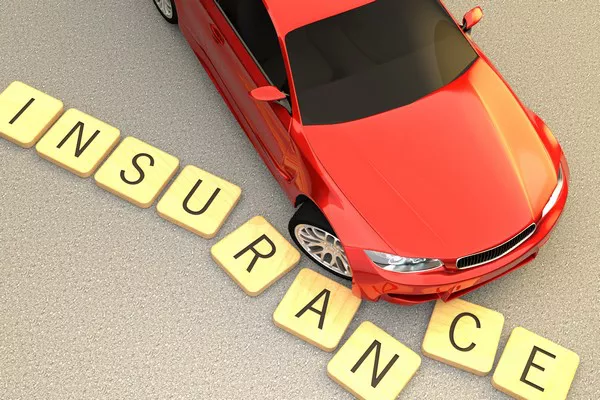In the complex landscape of insurance coverage, individuals often find themselves grappling with decisions that can significantly impact their financial well-being and peace of mind. One such crucial decision revolves around the type of automobile insurance one chooses to carry. While comprehensive coverage provides a blanket of protection, many opt for the more economical third-party insurance. However, what happens if you only have third-party insurance?
Understanding Third-Party Insurance
Before delving into the ramifications, let’s elucidate the nature of third-party insurance. Unlike comprehensive coverage, which encompasses damages to your vehicle and personal injuries, third-party insurance focuses solely on liabilities towards others involved in an accident. This means that if you are at fault in a collision, your insurance will cover the costs incurred by the other party—damages to their vehicle, medical expenses, and legal fees. Your own vehicle and injuries, however, are left unprotected, leaving you vulnerable in certain scenarios.
The Financial Tightrope: Repairing Your Vehicle
One of the immediate consequences of having only third-party insurance is the financial burden that comes with repairing your own vehicle. In the aftermath of an accident, you may find yourself with a damaged car and no coverage to foot the repair bills. This places you in a precarious position, especially if the funds required for the repairs are substantial. In such cases, individuals may have to dip into personal savings or take out loans to restore their vehicles to roadworthy conditions.
Moreover, the absence of coverage for theft or vandalism means that the onus of securing your vehicle from potential risks lies squarely on your shoulders. Without the safety net of comprehensive insurance, the financial implications of vehicle-related incidents become an immediate and tangible concern for those relying solely on third-party coverage.
Medical Dilemmas: Personal Injuries and Healthcare Costs
A critical aspect often overlooked by those opting for third-party insurance is the absence of coverage for personal injuries. In the unfortunate event of an accident, not only does your vehicle remain unprotected, but any medical expenses resulting from injuries sustained are also not covered by your insurance policy. This can lead to exorbitant healthcare costs, potentially putting a strain on your finances and well-being.
Comprehensive coverage typically includes personal injury protection (PIP) or medical payments coverage, ensuring that medical expenses related to the accident are taken care of, regardless of fault. Without this crucial aspect, individuals with only third-party insurance may find themselves grappling with the dual challenges of physical recovery and financial strain.
Legal Quagmire: Liability and Legal Expenses
When it comes to third-party insurance, liability is a central theme. While the policy covers the costs of damages to others, it also opens the door to potential legal complications. In the aftermath of an accident, determining fault becomes a critical factor in the claims process. If you are found liable, legal proceedings may follow, adding another layer of stress and financial strain.
Without the protective shield of comprehensive coverage, legal expenses become an out-of-pocket concern for individuals relying solely on third-party insurance. Legal representation, court fees, and settlements can quickly escalate, leaving policyholders grappling with the financial fallout of a legal quagmire.
The Ripple Effect: Impact on No-Claims Bonus and Premiums
For those who value a clean claims record and the associated perks, such as no-claims bonuses and lower premiums, the decision to opt for third-party insurance may have long-term consequences. In the absence of coverage for personal damages and theft, individuals may be compelled to make claims through their third-party insurance, affecting their claims history.
This can lead to a loss of no-claims bonus, resulting in higher premiums in subsequent years. The logic is simple: more claims equate to higher perceived risk for the insurance provider, translating into increased premiums for the policyholder. Thus, the financial repercussions of opting for third-party insurance extend beyond the immediate aftermath of an accident, creating a ripple effect that impacts the cost of coverage in the long run.
Mitigating the Risks: Supplementary Coverage Options
While the limitations of third-party insurance are evident, there are ways to mitigate the risks associated with relying solely on this type of coverage. Supplementary insurance options can be explored to bolster your protection without necessarily opting for a comprehensive policy. Some potential additions include:
1. Uninsured/Underinsured Motorist Coverage:
This additional coverage protects you in case of an accident with a driver who lacks insurance or has insufficient coverage. It helps cover your medical expenses and, in some cases, damages to your vehicle.
2. Personal Injury Protection (PIP):
Even if you have third-party insurance, adding PIP to your policy can provide coverage for your medical expenses and, in some cases, lost wages, regardless of fault.
3. Comprehensive Coverage for Specific Perils:
If the cost of comprehensive coverage is prohibitive, consider adding coverage for specific perils, such as theft or vandalism, to address some of the vulnerabilities associated with third-party insurance.
Conclusion
In the intricate dance of insurance decisions, finding the right balance between cost and coverage is paramount. While third-party insurance offers an economical alternative, understanding its limitations and potential repercussions is crucial. Striking a balance between financial prudence and comprehensive coverage can provide the peace of mind and protection necessary to navigate the unpredictable terrain of the road.
In conclusion, opting for only third-party insurance entails a calculated risk—one that necessitates a thorough understanding of the potential consequences. By weighing the financial implications, exploring supplementary coverage options, and making informed decisions, individuals can steer their way towards a more secure and resilient automotive insurance portfolio. After all, the road ahead is uncertain, but with the right coverage, one can navigate it with confidence and peace of mind.


